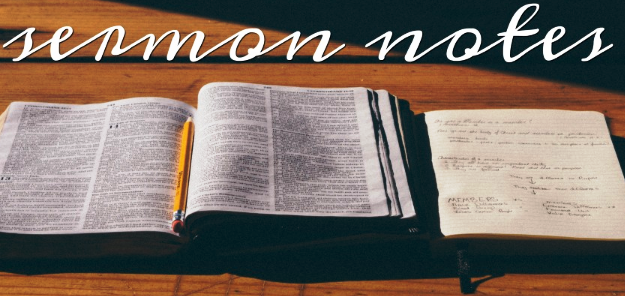
//Catholic Company//

416 N 2nd St, Albemarle, NC, 28001 | (704) 982-2910

//Catholic Company//

Scripture Reading: Philippians 4:4-9
Rejoice in the Lord always. I will say it again: Rejoice!
Philippians 4:4
A group of Buddhist scholars considered the weighty question of whether the Buddha, their figure of supreme serenity and harmony, ever laughed. After carefully checking their holy books, they concluded that indeed the Buddha may have smiled on at least one occasion. Some religions lack an emphasis on joy, but there should be no doubt that Christians appreciate humor, laughter, and joy. Why? Because God himself is joyful.
In Nehemiah 8:10 we are reminded, “The joy of the Lord is your strength.” And I love the description of God in Zephaniah 3:17: “The Lord . . . will take great delight in you . . . [and] will rejoice over you with singing.” Can you picture God singing for joy as he thinks about you and me?
Certainly the culmination of joy is the coming of Jesus. At Jesus’ birth the angel of the Lord proclaims, “I bring you good news that will cause great joy for all the people” (Luke 2:10). Christ’s coming to bring salvation has brought exuberant joy into the world.
The Holy Spirit, who lives in us, makes the joy of God and Jesus our own. There is no longer any need to search for joy. The Christian can say, “I have found it!”
The apostle Paul explains that when we have the joy of the Lord, we have the peace of God as well—and that is the fruit we will look at tomorrow.
Lord, we live in a world that is missing deep joy because of disease, disaster, and emotional distress. We desperately need your joy. Holy Spirit, fill us with the joy of the Lord, we pray. For Jesus’ sake, Amen.
| The Journey of Joy, By Dean Deppe — Friday, June 18, 2021 |
//Reframe Ministries//

Scripture Reading: Romans 8:1-8
The mind governed by the Spirit is life and peace.
Romans 7:5
Romans 8 is a key chapter about life in the Spirit. And to understand it, we need the background of Romans 6-7.
In these chapters, the apostle Paul explains that before life in the Spirit occurs, we need to give up trying to control our own lives. We need to be “crucified” with Christ so that we are no longer “slaves to sin” (Romans 6:6). We also need to realize that when we live as slaves to sin—and this includes trying to live by God’s law on our own—we will always fail. We will find that (1) we cannot do the good that we want to do, and (2) we will keep on doing the bad that we do not want to do (Romans 7:14-23).
Is there any way we can be freed from this mess? “Thanks be to God!” Yes! (Romans 7:25)—and only by the grace of God through faith in Jesus Christ, our Lord and Savior. When we trust in God’s power to save us, we receive new life in the Spirit, and we depend on the Spirit to lead and guide us always.
If we are governed or controlled “by the flesh,” that means we are trying to live by our own strength or under our own direction. Every day, we need to ask the Spirit to fill us and direct us.
Life in the Spirit means that the Holy Spirit accomplishes what we cannot do ourselves. Just as we must depend on and trust in God’s grace through Jesus to save us, so we must depend on and trust the Spirit to guide and govern us each day. And in his power we no longer struggle but find rest.
Father, Son, and Holy Spirit, help us to depend completely on your power to save us and to guide us. Amen.
| By Dean Deppe — Wednesday, June 9, 2021 |

Poet, teacher, orator, and defender of the faith, Ephrem is the only Syriac Christian recognized as a doctor of the Church. He took upon himself the special task of opposing the many false doctrines rampant at his time, always remaining a true and forceful defender of the Catholic Church.
Born in Nisibis, Mesopotamia, he was baptized as a young man and became famous as a teacher in his native city. When the Christian emperor had to cede Nisibis to the Persians, Ephrem fled as a refugee to Edessa, along with many other Christians. He is credited with attracting great glory to the biblical school there. He was ordained a deacon but declined becoming a priest. Ephrem was said to have avoided presbyteral consecration by feigning madness!
He had a prolific pen, and his writings best illumine his holiness. Although he was not a man of great scholarship, his works reflect deep insight and knowledge of the Scriptures. In writing about the mysteries of humanity’s redemption, Ephrem reveals a realistic and humanly sympathetic spirit and a great devotion to the humanity of Jesus. It is said that his poetic account of the Last Judgment inspired Dante.
It is surprising to read that he wrote hymns against the heretics of his day. He would take the popular songs of the heretical groups and using their melodies, compose beautiful hymns embodying orthodox doctrine. Ephrem became one of the first to introduce song into the Church’s public worship as a means of instruction for the faithful. His many hymns have earned him the title “Harp of the Holy Spirit.”
Ephrem preferred a simple, austere life, living in a small cave overlooking the city of Edessa. It was here that he died around 373.
Reflection
Many Catholics still find singing in church a problem, probably because of the rather individualistic piety that they inherited. Yet singing has been a tradition of both the Old and the New Testaments. It is an excellent way of expressing and creating a community spirit of unity as well as of joy. An ancient historian testifies that Ephrem’s hymns “lent luster to the Christian assemblies.” We need some modern Ephrems—and cooperating singers—to do the same for our Christian assemblies today.
//Franciscan Media//

“For all, regenerated in Christ, are made kings by the sign of the cross; they are consecrated priests by the oil of the Holy Spirit, so that beyond the special service of our ministry as priests, all spiritual and mature Christians know that they are a royal race and are sharers in the office of the priesthood. For what is more king-like than to find yourself ruler over your body after having surrendered your soul to God? And what is more priestly than to promise the Lord a pure conscience and to offer him in love unblemished victims on the altar of one’s heart?”
— St. Leo the Great
//Catholic Company//


“That 3 in 1 and 1 in 3 Thing”
Father Peter Fitzgibbons
May 22 – 23, 2021
Gospel: John 20:19-23
Today, Holy Mother Church celebrates the Solemnity of Pentecost which is when the Holy Spirit came upon the Apostles. It’s also the birthday of the Church. Now, let me ask you a question. When did you first receive the Holy Spirit? At Baptism. Remember, when I baptize you, it is done in the name of the Father, the Son, and the Holy Spirit. When is the next time you receive the gift of the Holy Spirit? At Confession. After that? Holy Communion. Now, you may be thinking, “You also receive the Holy Spirit at Confirmation.” Yeah, you do. You receive Jesus, and you receive God the Father. That 3 in 1 and 1 in 3 thing. You receive the fullness of the Spirit. In each Sacrament, you receive the whole God.
The Sacraments are given for different purposes depending on your particular mission in the Body of Christ. At Baptism, you were given the gift of God Himself. In each Sacrament, you get the gift of the whole God…not just a slice of Him. You get the Father, the Son, and the Holy Spirit. In Baptism, Christ asked for, and you, through your parents, gave Him your human nature. The human nature He took from Mary in the body He was born with, taught with, healed with, suffered with, and redeemed us with is now in Heaven. So, how does He continue His mission to teach, heal, and sanctify the world? It goes on through us by living a good Catholic life. In whatever part of the Body of Christ He has assigned us, we work for His glory and the salvation of souls. So, if you are in hell, you are a self- made man.
Christ takes our human nature at Baptism, so, we are part of His new body which is the Church. Each of us has a place in the body of Christ to do the work of bringing Him to the world. Through the gifts of the Holy Spirit, He helps us accomplish that mission. There are seven gifts (wisdom, understanding, counsel, fortitude, knowledge, piety, and fear of the Lord) and 12 fruits (charity, joy, peace, patience, kindness, goodness, long-suffering, humility, faithfulness, modesty, self-control, and chastity). The whole purpose of giving us the Holy Spirit through the Sacraments is to bring God’s love to the world and to make that love manifest in whatever part of the Body we are in. The graces of the Holy Spirit strengthen us so that we can carry out that mission.
Part of my job as a priest is working at the veterans’ hospital in Hospice. Hospice is a part of the hospital where people who are very sick and in the last six months of their lives are cared for by specially trained doctors and nurses. They have all sorts of terrible diseases. We had one patient who had Progressive Supranuclear Palsy which is a rare disease that the patient contracted while working as a doctor in Vietnam. His brain turned into jelly, and there is no treatment. It’s so sad. The hospice staff try to make their patients as comfortable and pain-free as possible. A few years ago, there was a nice area with a kitchen and dining room where hospice patients could come out of their rooms and eat together. Other veterans from across the hospital would come down and have lunch with them. It was so much fun to laugh and talk with them. I would pick up trays and do whatever I could for them. You know what a sign of God’s love looks like? There was a hospice patient at the luncheon who couldn’t feed himself…he was that sick. Another man who, after this incident died about two weeks later, was also at the luncheon. But, instead of eating his own lunch, he spent that time feeding the patient who couldn’t feed himself. One would think that if you’re dying, it would be all about you. But, this is what God’s love looks like. This was an act of the Holy Spirit. The staff would have fed that patient, but he did it. He didn’t have to do it, but he wanted to. He made sure that man ate before he did. That is a sign of the Holy Spirit in action and God’s love is in the world.
Another thing they have done in Hospice, and hopefully will do again once COVID is over, is that when veterans are actively dying and don’t have family members there, volunteers come and sit with them all night and all day so that they don’t have to die alone. Usually, the veterans are very old and don’t have anybody. But, a veteran should never die alone. In the military, you never leave a fallen comrade. I’ve always thought that this is a sign of Christ, along with their guardian angel, being with them as they leave this life. You see the love of Christ in those volunteers. They don’t need to teach us…their actions teach us everything. It’s all through the promptings of the Holy Spirit who moves and works within us – not always the way want; otherwise, I’d be a monsignor!
I’ll tell you a story about the nursing staff. Don’t let this get back to them. World War II veterans are very old, and when they are nearing the time of their passing, all of the memories of what they had to do during the war come back. Mine will come back too when it’s my time. It’s just part of what we went through. It comes back for a lot of the men who saw combat. Many times, it was their wives who helped them keep it all together, and if their wives are no longer with them, it’s a real hardship for them. I remember this one man who was in his nineties and about to leave us asked the nurse if she would hold his hand until he fell asleep. The memories had come back, and his wife had done that for him. That’s not in any nurse’s job description. But, she sacrificed her own time to sit with that man while he faced his nightmares. I’ve sat with veterans as they were passing from this life…that’s what we do. We offer spontaneous acts of love. I’ve seen you do it. Your acts of generosity are acts of the Holy Spirit. You are showing Christ’s love. If you ask anyone why they do it, they would probably say that they don’t know, but it felt like the right thing to do. Do they get paid for it? No. It was just the right thing to do. These are the actions of the Holy Spirit using our human natures to show Christ’s love to the world. But, so that we can repeat these acts of love, we must be refreshed in the Holy Spirit by frequently participating in the Sacrament of Penance and Holy Communion.
What is so beautiful about these acts of love is that you do it without thinking. It’s just a normal response. You don’t stop and think about what you should or shouldn’t do…you just do it. That’s the action of the Holy Spirit letting the Spirit work in you to bring the love of Christ to the world. And, believe it or not, someone will see and be taught God’s word simply through your acts of love
How will you apply this message to your life? Refresh yourself in the Holy Spirit by frequently participating in the Sacrament of Penance and Holy Communion
You can read all of Father Fitzgibbons’ sermons by going to https://annunciationcatholicalbemarle.com/ and clicking on “Blog” then “Categories” and then “Sermon Notes.” From a cell phone, click on “Blog” then “Menu” and then “Categories” (located at the end of page). There is also a search box if you are looking for a specific topic.


The gift of the Holy Spirit—whom Jesus called the “promise of the Father”—was given to the apostles at Pentecost. And in the miraculous events that accompanied the sending of the Holy Spirit, it became quite clear that the saving action of God would compellingly move forward. Those present in the Upper Room were recreated according to the order of grace to share the life of God, who is love. They were able to, as it were, “breathe with God.” This love poured into their hearts by the Holy Spirit is no mere human sentiment but the indwelling presence of the divine. It courses through them as gently and imperceptibly as the air they breathe. The Holy Spirit is the unseen power that fuels the ministry and activity of the apostles and gives them the courage to speak in Jesus’ name.
— from the book Inspired: The Powerful Presence of the Holy Spirit
by Fr. Gary Caster
//Franciscan Media//

Here in Ephesus, she was now as she was then: a girl, a woman, waiting and watching for the angel who would announce the word of her passing into the heaven where her Son ruled at the right hand of the Father. She was not afraid. She needed no Gabriel to reassure her. She’d lived too long in the immensity of the mystery to doubt. Nor did she wonder who she would be in eternity. She would be who she always was: Mary, the mother of God’s Son. She suspected that would be her role for all eternity: mother, woman, the completion of the love of the mysterious faces of God—Father, Son, Holy Spirit—the mystery moving through the three of them into her, visible in eternity as it is invisible on earth.
— from the book Nourishing Love: A Franciscan Celebration of Mary
by Murray Bodo, OFM
//Franciscan Media//